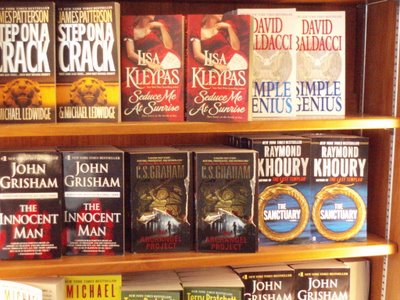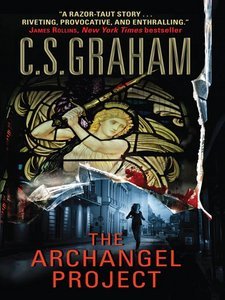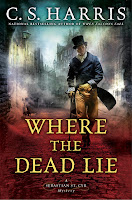A disturbing story was making the rounds among authors and editors at this year’s Bouchercon: it seems that a segment of Lee Child’s readers are so enraged by antiwar statements made by characters who are Iraq War vets in his latest Jack Reacher novel that these readers are tearing out the offending pages, using them as toilet paper, and mailing them to Child.
Child found this reaction somewhat bemusing, given that he literally took quotes from real Iraq War vets and put them in the mouths of his characters. We all know that anti-war vets exist—they haven’t exactly been keeping quiet. Not only that, but it’s a time-honored tradition in fiction to have characters disturbed by their war experiences. So what’s going on here?
I first encountered this troubling mindset in some of the reactions to my Sebastian St. Cyr books. The fact that the series is about an Englishman in the early nineteenth century didn’t stop certain readers from objecting to statements my main character makes about things like the Napoleonic Wars and the American slave trade. That’s right; evidently having a character who is speaking in 1811 criticize the existence of slavery in the United States (while trying to wheedle information out of an ex-slave, no less) marks me as both liberal and unpatriotic. And as for the idea that Englishmen might have committed what we would today call war crimes or that a war veteran might be troubled by his experiences? How dare I suggest that anyone of Anglo-Saxon origins could ever be anything less than a hero in war, or that wars can be horrible rather than ennobling experiences.
So when Steve and I wrote
The Archangel Project, we knew what we were letting ourselves in for. We could have written a safe, predictable thriller about Islamist terrorists, but the truth is, we don’t find the menace of terrorism nearly as scary as the threats to the American way of life that come from inside this country. So
Archangel is about things like the Big Brother trends in modern government, the influence of giant energy and defense conglomerates on foreign policy, the dangers inherent in the privatization of the military and intelligence sectors, and the inevitable economic impact of militarism and empire building. And the bad guys? Basically, they’re people who are greedy, although they try to disguise their greed behind an exaggerated patriotism and neo-conservative philosophy. Given what they’re doing, it would be beyond implausible to have any of these guys profess to be a “liberal.”
But any reader who therefore leaps to the conclusion that Steve and I are “liberals” is making, well, an unsupported leap. Don’t get me wrong: I’m not one of those people who considers the “L” word a dirty slur. But I’d like to point out that Libertarians also condemn the above-named tendencies as Bad Things, and they think of themselves as “conservatives.” In fact, Libertarians are virtually the only group that has been vocally against the war in Iraq since before it began. They run a great website called antiwar.com that provides links to all the news that is either never printed in this country, or is typically buried on the bottom of page F56. You’ll notice that antiwar.com is in the list of links on the right; it’s always been there. Does that mean I’m a Libertarian? No. The truth is, I’ve lived such a huge chunk of my life outside the United States that I don’t find I can identify too closely with any of the current parties.
Yet there’s no denying that Steve and I feel passionately about current trends and follow them closely; otherwise, the idea for
The Archangel Project would never have occurred to us. The important thing to remember is this: our stories are STORIES. “President Randolph” is President Randolph, not President Bush; he will be in
The Deadlight Connection next year, long after Bush is gone. We write dialogue, not polemics, and every word is there either to advance the plot, deepen characterization, or provide information the reader needs to make sense of the story. Some readers may find that the realities we choose to mention threaten some of their deeply held beliefs, but that doesn’t alter the fact that our purpose is not to challenge their beliefs, but simply to tell a story. Our female protagonist, Tobie, is actually a fairly apolitical figure; she’s never been particularly interested in history or current affairs, and it shows. Our male protagonist, CIA agent Jax Alexander, is keenly aware of both. But Jax is not a front for either Steve or I; instead, Jax, Matt, and Colonel McClintock are all inspired by the many intelligence personnel we have known over the years. Because the truth is, when you’ve heard your President get up and tell the American people something you know is directly contradicted by the report on your desk, or when you’ve been ordered by your superiors to go up on the hill and lie to Congress, you tend to get a little cynical. A lot cynical. This unblinkered realism is the reason so many veteran CIA agents have been forced out of the Company in recent years. And yes, we do touch upon that, too—again, not because we’re writing a polemic, but because in order for our story to make sense, this little-known reality needs to be stated—however uncomfortable some readers may find it.
Every writer inevitably brings his or her own particular ideology to their books. You can only write thrillers about the things that scare
you. Certain modern American thriller writers whose names I won’t mention display such vitriolic bigotry and xenophobia that I can’t read their books; yet one rarely sees their racism criticized. Why? I suppose because if a writer’s basic beliefs and assumptions chime well with the popular passions of his age, the majority of his readers won’t even notice his bias. Back in the days of the Cold War, most American thriller writers took it as a given that the Russians/Commies were the bad guys and the Americans were by default the good guys. Only a few, generally British authors dared look at some of the things Western governments were doing and suggest that maybe overthrowing democratically-elected leftist governments and replacing them with right-wing dictators backed by death squads was both morally objectionable and stupidly short-sighted (can anyone say, “Iran”?). All you need to do is consider the reception given a few years ago in the United States to the film based on Graham Greene’s
The Quiet American to realize how far we still have to go in this respect.
So Steve and I expect
The Archangel Project to rattle some readers. That’s okay; controversy is good for sales. But there’s a difference between controversy, and the kind of unreasoned hatred that once prompted angry mobs in Pakistan to burn Salmond Rushdie in effigy, or that leads partisans at a political rally to yell “terrorist” and “kill him” when the opponent’s name is mentioned. What has happened to the civil discourse we once liked to think characterized our country?
No writer should ever have to worry about what is going to show up in his mailbox.





